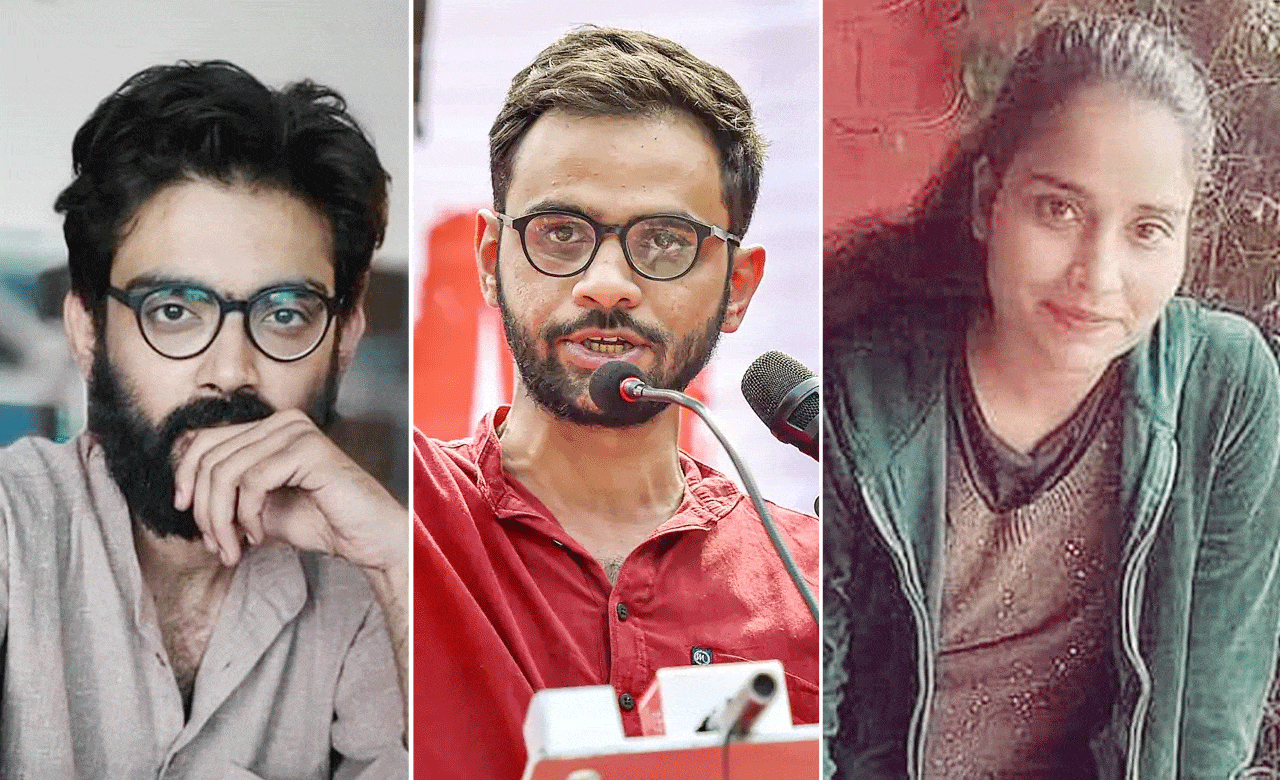Delhi Riots Case: Umar Khalid, Sharjeel Imam and Others Denied Bail by Delhi High Court
Police allege that Umar Khalid and Sharjeel Imam were the masterminds behind the violence and have charged them under the Unlawful Activities (Prevention) Act (UAPA) as well as various provisions of the Indian Penal Code (IPC).

New Delhi: In a major development in the 2020 Northeast Delhi riots conspiracy case, the Delhi High Court has rejected the bail pleas of Umar Khalid and Sharjeel Imam along with several other accused.
The court dismissed not only the bail applications of Khalid and Imam but also those of Mohammad Salim Khan, Shifa-ur-Rehman, Athar Khan, Meeran Haider, Abdul Khalid Saifi, and Gulfisha Fatima.
Appearing on behalf of the prosecution, Solicitor General Tushar Mehta argued that the case was not merely about communal riots but a well-planned conspiracy aimed at defaming India globally. He maintained that the prolonged incarceration of the accused could not be the sole ground for granting bail.
Also Read: Schools and Banks to Remain Closed for Several Days in September 2025 – Check Full List
The prosecution further stressed that the riots were not spontaneous incidents but rather a carefully orchestrated plot with a dangerous objective.
Earlier, Sharjeel Imam’s counsel contended that his client had no connection with the timing or location of the riots and denied any association with the other accused. The defense argued that Imam’s speeches or WhatsApp chats never called for violence or incited riots.
The riots broke out during protests against the Citizenship Amendment Act (CAA) and the National Register of Citizens (NRC), resulting in 53 deaths and over 700 injuries.
Police allege that Umar Khalid and Sharjeel Imam were the masterminds behind the violence and have charged them under the Unlawful Activities (Prevention) Act (UAPA) as well as various provisions of the Indian Penal Code (IPC).
Sharjeel Imam was arrested on August 25, 2020. A trial court had earlier denied bail to the accused, following which the matter was challenged before the High Court. The petitioners had sought release on the grounds of prolonged imprisonment.
According to the police, the accused delivered provocative speeches on sensitive issues such as CAA-NRC, Babri Masjid, Triple Talaq, and Kashmir, spreading fear and unrest. Authorities argued that in such serious cases, the principle of “bail is the rule and jail is the exception” does not apply.
